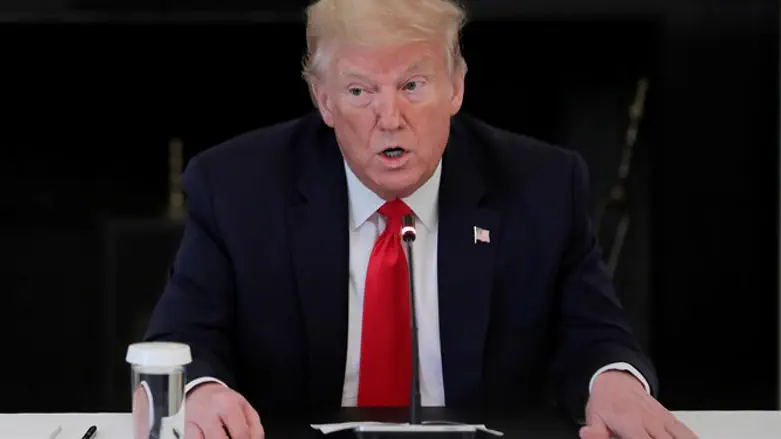
US President Donald Trump on Wednesday vetoed a resolution aimed at constraining his ability to take military action against Iran, The Hill reports.
In a statement, Trump said he vetoed the Iran war powers resolution that “purported to direct me to terminate the use of United States Armed Forces in hostilities against Iran.”
“This was a very insulting resolution, introduced by Democrats as part of a strategy to win an election on November 3 by dividing the Republican Party. The few Republicans who voted for it played right into their hands,” added Trump.
“Congress should not have passed this resolution,” he concluded.
Congress is not expected to have the two-thirds majority needed to override Trump’s veto.
Congress passed the Iran war powers resolution nearly two months ago, following the elimination of top Iranian General Qassem Soleimani, but it was delayed in being officially sent to the White House as lawmakers stayed out of D.C. amid the coronavirus pandemic.
The House officially enrolled the measure during a pro forma session in April, but the Senate did not enroll it until after the chamber fully returned to town this week.
Democrats have been critical of Trump’s order to eliminate Iranian General Qassem Soleimani in Iraq at the beginning of January, claiming he should have consulted with Congress beforehand.
The House approved the resolution in a 227-186 vote in March as one of its last votes before leaving town. Six Republicans joined with Democrats in approving the measure.
That followed the Senate’s 55-45 approval in February, when eight Republicans voted with Democrats to support the resolution.
Neither chamber’s vote reached the two-thirds threshold needed to override a presidential veto.
In his statement on Wednesday, Trump argued the war powers resolution was based on “misunderstandings of facts and law.”
“Contrary to the resolution, the United States is not engaged in the use of force against Iran,” he said, reiterating his administration’s arguments that the Soleimani strike was allowed under the 2002 authorization for the use of military force passed to approve the Iraq War and the president’s constitutional powers as commander-in-chief.
Trump also argued the resolution would have “greatly harmed” a president’s ability to protect the United States and its allies.
“The resolution implies that the president’s constitutional authority to use military force is limited to defense of the United States and its forces against imminent attack,” he said. “That is incorrect. We live in a hostile world of evolving threats, and the Constitution recognizes that the president must be able to anticipate our adversaries’ next moves and take swift and decisive action in response. That’s what I did!”
